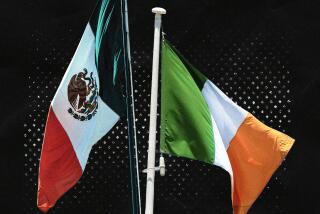Liberation Theology
Why did Kenneth Freed travel all the way to Perquin, or as he so dramatically puts it, to âthe capital of a liberated zoneâ in El Salvador, in order to interview Fathers Rogelio Ponseele and Esteban Velazquez? He could have written his sensational âThe Cross and the Gunâ (World Report, Oct. 9) by simply staying in his hotel room and reading Paul Sigmundâs âLiberation Theology at the Crossroads,â which he quotes so freely.
Rather than focus in any significant way on the ministry of these two men, it seems that Freed simply wanted to experience the local color of being in a war zone, watching the priests speak from under an FMLN banner in the town square, and asking himself if the young guerrillas present â. . . would fully understand all the arguments of liberation theology.â (It should be pointed out also that neither Rogelio Ponseele nor Gustavo Gutierrez are Jesuits.)
Ponseele has been ministering in Morazan province for 10 years, celebrating the liturgy, hearing confessions, baptizing, burying the dead and, yes, preaching that the conditions under which most Salvadorans live should not in any way be considered âGodâs will.â There are thousands of civilians in that zone, people who have been displaced by the war, refugees who have recently returned from camps in Honduras and others who have remained in their homes in spite of the war raging around them.
Freedâs weighty ponderings on whether liberation theology has a future now with the changes in Eastern Europe and recent âbloody reprisals,â such as the killing of Ignacio Ellacuria and the other Jesuits of the University of Central America last November, seem simply out of touch with the reality of the Salvadoran peopleâs faith in God. The âcounter-attackâ against the church in El Salvador is nothing new. It did not begin last November when the Jesuits were killed, nor in 1980 when Archbishop Romero was assassinated, nor even in 1977 when another Jesuit, Father Rutilio Grande, S.J., became the first priest killed in El Salvador by the right-wing death squads.
The roots of this âcounter-attackâ go back 2,000 years. Liberation theology is not based on ârevolutionary rhetoric and action,â much less on the Gospel of Marx (c.f. your accompanying piece âThe Gospel of Marx and Isaiahâ). It is based on the Gospel of Jesus, as is the pastoral work of Ponseele. Most of his work involves walking between villages visiting with people, as Jesus himself did. The âbloody reprisalâ against Jesus 2,000 years ago did not prevent the Gospel from spreading then. Neither will changes in Europe, assassinations against the church in El Salvador, nor the fact of the war itself prevent that good news from spreading now.
RICHARD A. HOWARD, S.J.
Regional Director, Jesuit Refugee Service
El Salvador
More to Read
Sign up for Essential California
The most important California stories and recommendations in your inbox every morning.
You may occasionally receive promotional content from the Los Angeles Times.










